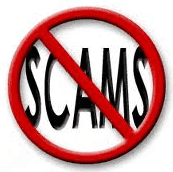Unsuspecting small businesses are often in the sights of scammers around the end of the financial year, with the Australian Competition and Consumer Commission (ACCC) suggesting SMBs remain vigilant at this time of year.
The ACCC has noted a spike in the number of small business scam complaints after the end of the financial year. Generally, the most prevalent small business scams relate to false billing, which involves false invoices for advertising, directory listings, domain names and office supplies.
The total reported loss to the ACCC in the 2010 calendar year for false billing was $966,844.
Some of the typical methods used by scammers include:
- Sending invoices for payment of goods or services, which the business did not request – such as unordered business supplies.
- Charging for advertising, which the business did not request.
- Providing fake directory listings.
“These types of scams aim to trick your business into agreeing to ongoing payments for goods or services you didn’t order,” ACCC deputy chair Michael Schaper said.
The ACCC has the following suggestions for SMBs to avoid being scammed:
- Know your suppliers – keep written records of all orders and purchases, and only deal with suppliers you know and trust
- Limit the number of people in the business authorised to place advertisements and to pay accounts.
- Check the legitimacy of any offer by contacting the organisation using their official contact details – don’t rely on the details provided to you on the invoice or offer as it is very common for scammers to pretend they are affiliated with a reputable business.
- Educate staff about scams and instruct them to be cautious when examining all accounts or offers.

